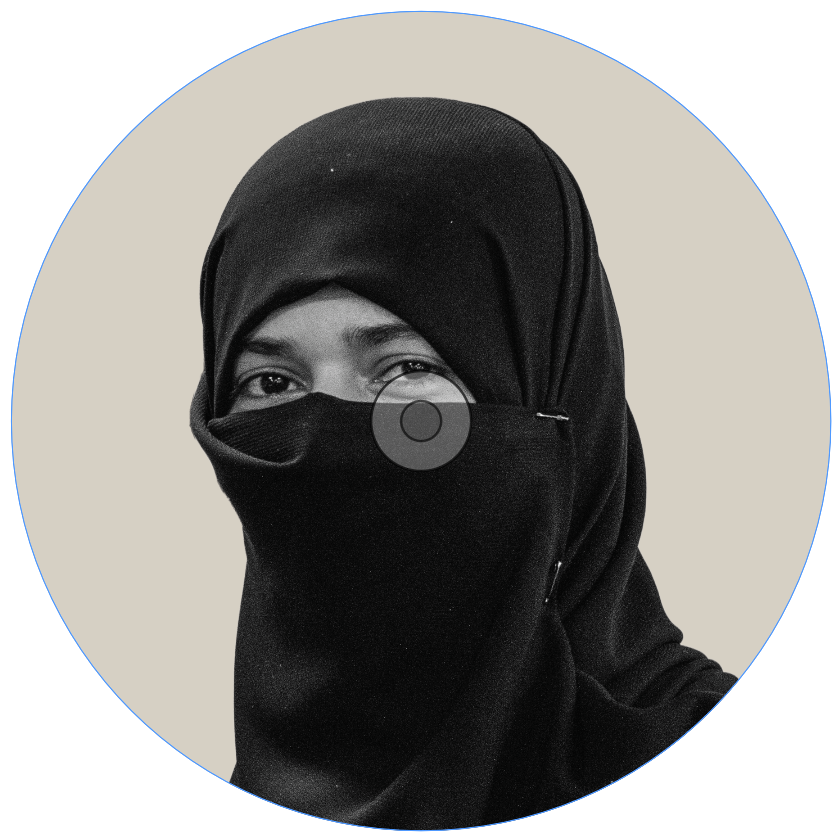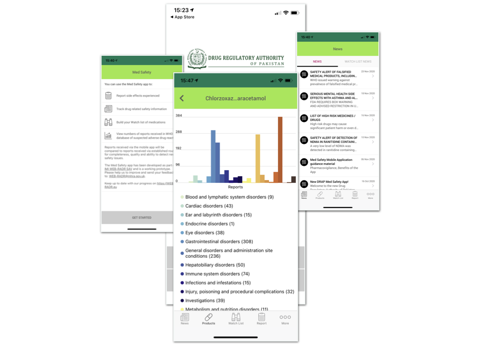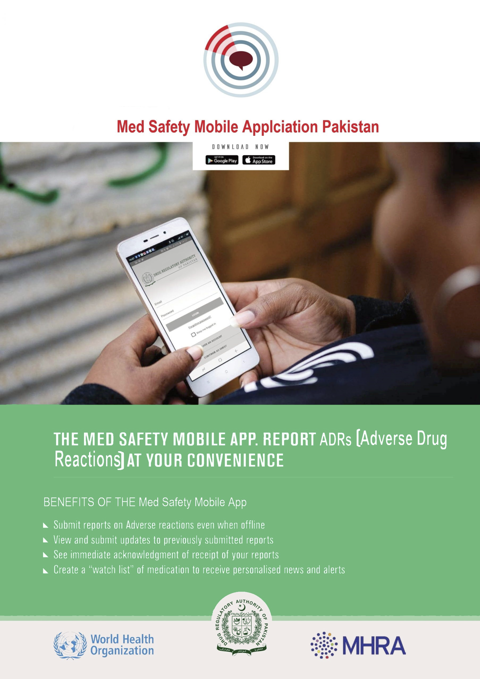
Aqsa Hashmi
Assistant Director (Division of Pharmacy Services), Drug Regulatory Authority of Pakistan

Pakistan’s ambitious pharmacovigilance authorities made the most of the recent #MedSafetyWeek, leveraging that campaign to successfully launch the Med Safety App in the country.
Pakistan’s apex regulatory body for therapeutic goods, the Drug Regulatory Authority of Pakistan (DRAP), launched the Med Safety App during #MedSafetyWeek 2020. This app – developed for Pakistan in collaboration with the UK’s Medicines and Healthcare products Regulatory Authority (MHRA), UMC, and the World Health Organization (WHO) – now makes it easy for anyone to report adverse drug reactions (ADRs) through their mobile devices. This is yet another step towards strengthening pharmacovigilance in Pakistan. It builds upon the comprehensive national pharmacovigilance network DRAP has recently established, comprising the centrally operated Pakistan National Pharmacovigilance Centre (PNPC) in Islamabad integrated with regional pharmacovigilance centres.
“PNPC, Division of Pharmacy Services is very thankful to MHRA, UMC, and WHO for their technical and financial support in developing this mobile application,” said Dr. Abdur Rashid, Head of PNPC and Director of Pharmacy Services at DRAP.
“The Med Safety App is simple, easy to use, and very convenient for uploading information about adverse reactions. It is paperless, hence environmentally friendly, and urges swift corrective measures on identified safety issues.”

This was the first time Pakistan has participated in #MedSafetyWeek, and our campaign was carried out mainly through social media, covering dissemination of information on the necessity of reporting ADRs, the Med Safety App and its use, and ways to easily access related information from the app. Throughout the week of the campaign, we used print and electronic media, displayed physical posters and other materials, and we used our official Twitter and Facebook accounts to post banners. We also encouraged our employees to share banners about the Med Safety App through their personal social media accounts. The response we received from most colleagues, friends, and acquaintances was appreciative and encouraging, and everyone was eager to reshare the animations which conveyed serious messages in an interesting, slightly amusing, and fun way.
From DRAP’s perspective, #MedSafetyWeek was an opportunity for boosting awareness of the Med Safety App in Pakistan. The messages and material provided by UMC were appealing and attractive and they developed interest and curiosity in the audience to seek more information.
There is always a pressing need to reach out to patients and healthcare professionals in Pakistan for a true picture of the ADRs being experienced.
“Everyday tens of thousands of patients suffer from unnoticed harms or adverse drug reactions (ADRs) throughout the world. These harms increase hospital admissions and, in some cases, might result in mortality and morbidity,” said DRAP CEO, Asim Rauf.
But #MedSafetyWeek and the awareness campaign about ADR reporting through the Med Safety App made it possible to sensitize ordinary people to these issues.
“Patient safety is the ultimate objective of a regulator and DRAP has implemented a framework of clear policies. This app will help us with reporting of ADRs so that we become more vigilant about the harms posed by various therapeutic goods,” Rauf said.
“I urge all healthcare providers to give the highest consideration to medication safety by reporting any suspected ADR to PNPC. This will help to provide more information about therapeutic goods, which will ultimately help to make them safer and prevent the occurrence of that harm in other patients.”

Since 2020, the ICPV has worked to improve drug safety reporting at Instituto Nacional de Cardiología Ignacio Chávez, with promising outcomes.
16 October 2025
Two-thirds of pharmacists in Nigeria witness weekly cough syrup abuse, yet poor reporting systems and unclear guidelines prevent effective intervention, leaving its youth at risk.
03 December 2025
The annual #MedSafetyWeek campaign reminds us that medicines work best when they're safe. In Aligarh, healthcare workers came together to make that message a living reality.
19 November 2025